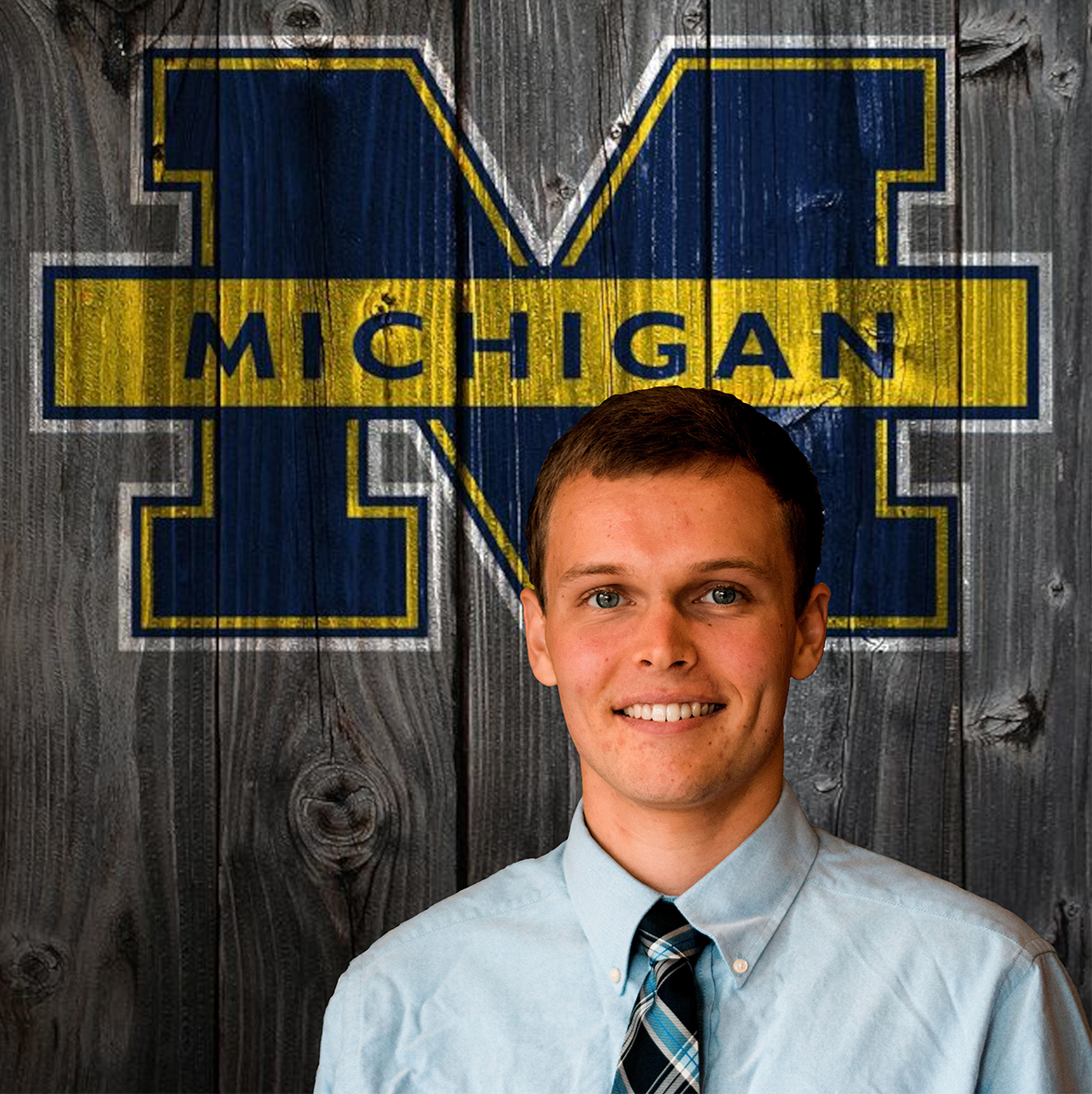Tim Dunn selected for NSF Graduate Research Fellowship
Through his work, Tim hopes to dramatically accelerate genomic sequencing analysis, enabling the use of handheld genomic sequencers to produce actionable diagnostic data within minutes.

 Enlarge
Enlarge
PhD student Tim Dunn has been awarded a prestigious NSF Graduate Research Fellowship to continue his studies in computer science and engineering at the University of Michigan.
The program recognizes and supports outstanding graduate students in NSF-supported science, technology, engineering, and mathematics disciplines who are pursuing research-based masters and doctoral degrees at accredited United States institutions.
Tim’s current work is on improving the speed, cost, and accuracy of nanopore-based genome sequencing. Tim is advised by Prof. Satish Narayanasamy, and also works closely with Profs. Reetuparna Das and David Blaauw.
While it cost nearly $3 billion to sequence the first human genome in 2001, in the last decade alone the cost of sequencing has plummeted from $10 million to merely a few hundred dollars, largely due to improvements in sequencing throughput. DNA sequencing is poised to revolutionize precision medicine over the next decade by enabling a comprehensive overview of the composition of each patient’s genome and microbiome. The most common application of sequencing is “variant calling,” which determines the unique order of nucleotides in an organism’s DNA and identifies variations from a reference genome. Among other things, variant calling is useful for identifying cancerous mutations, genetic diseases, and deadly pathogen strains.
In order for sequencing to be of practical use, it must be portable and provide accurate results in real-time. Traditional sequencing methods fail in this regard because they are either slow, require large machinery, or process data in large batches from many patients for cost-effectiveness. Nanopore sequencing solves these problems: it is portable, real-time, and highly-scalable. It works by passing single-stranded DNA through a nanopore and simultaneously measuring the ionic current through that same pore.
Tim is currently designing an accelerator which can reduce the cost of nanopore sequencing for pathogen detection by classifying individual DNA strands as originating from a target virus or not, in real-time as the DNA being sequenced. If the DNA does not originate from the target virus, the nanopore can begin to sequence another DNA strand. Since viruses typically only comprise 0.1% of a swab sample, this approach can save significant wasteful sequencing. Existing classifiers cannot achieve sufficiently low latency and high throughput for the next generation of nanopore sequencers, necessitating this accelerator research. Tim is also currently working on a novel method to improve variant calling, which uses information from the raw current measurements instead of nucleic bases to identify variants.
In 2017, while an undergraduate at Clarkson University, Tim received a Barry M. Goldwater Scholarship for excellence in undergraduate research. In the summer of 2020, Tim served as a Program Mentor for Paper Airplanes: Women in Tech, Business Analytics, a 10-week program that teaches business and data analytics skills to female refugees. He was also a member of ArborHacks in 2020, a U-M student group that introduces middle- and high-school students to programming. Additionally, Tim served as a volunteer for “Lunch and Lab with a Grad,” where he met with U-M undergrads interested in grad school.
 MENU
MENU 
